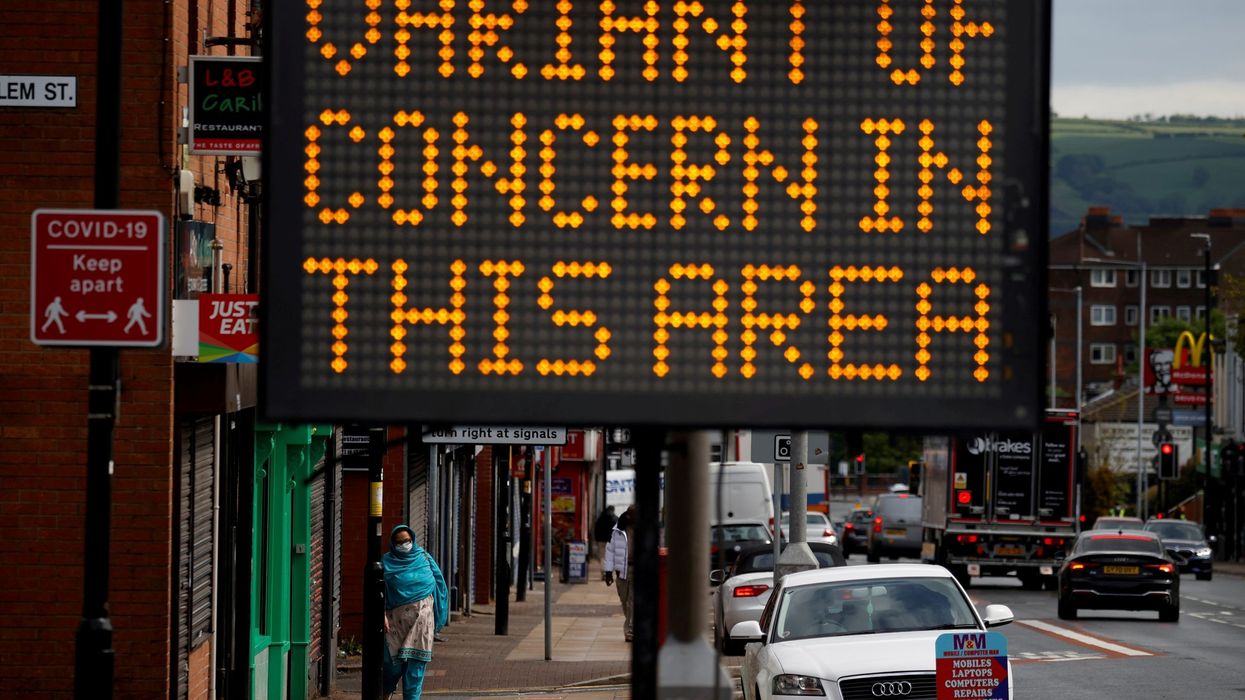CONFUSION prevailed over the alleged “sneaky” announcement made by the government under which Britons are told not to travel in or out of eight Indian variant hotspots to stop the spread of the mutant strain.
The eight Indian variant hotspots identified are Bedford, Blackburn and Darwen, Bolton, Burnley, Kirklees, Leicester, Hounslow, and North Tyneside. However, a row has broken out over the claims that the new guidance has been issued without any widespread announcement.
According to the government guidance published online, people should "avoid travelling in and out of affected areas unless it is essential, for example for work (if you cannot work from home) or education".
Guidelines updated on May 21 advised people against hugging people they don't live with, suggesting that people from separate households should "keep two metres apart."
Local leaders and authorities are claiming that the new guidance was issued without consulting or even informing them.
Bolton MP Yasmin Qureshi said she was left 'gobsmacked' by the change, adding “the least I would expect is a letter or email from (Matt Hancock) or his office as a matter of courtesy.” She also said it was "not clear" whether "this is advisory or legally obligatory."
"The guidance is likely to have major implications on businesses, schools, and the hospitality sector and I am furious that the government hasn't even bothered to consult the local authorities involved," Kate Hollern, Labour MP for Blackburn, said.
"Making a major change that will impact so many people without even telling them is utterly shameful," Labour leader Sir Keir Starmer posted on Twitter.
Newly-elected West Yorkshire mayor Tracy Brabin called for the Health Secretary to explain the change to Parliament.
However, a Downing Street source said all the areas were told about the advice, BBC reported.
Defending the government's guidelines, cabinet minister Therese Coffey said in BBC Radio 4's Today programme that it was "sensible" to issue extra guidance for Indian variant hotspots. The Work and Pensions Secretary said people living in these areas should consider "whether it really is essential" for them to travel, and should limit activities where they risked either passing on or catching the variant.
The Indian variant has already spread to 151 out of 315 council areas and is on the way to become the new dominant strain in the country, displacing the Kent variant. Estimates suggest it may be around 30 per cent more transmissible but vaccines still work against it.
Layla Moran, who chairs the all-party parliamentary group on coronavirus, said the government's move is causing confusion. She also said that simply updating the government website without an official announcement is a "recipe for confusion and uncertainty."




